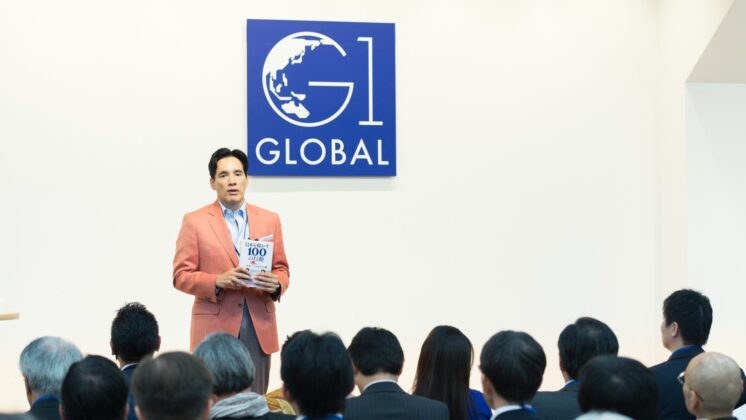Historically speaking, when Japan has connected with the world, Northeast Asian countries have served as geopolitical gateways. It would not be possible to think about Japan in relation to the wider world without taking into account the relationship with the Northeast Asian region. All the more because Japan has a long and close history with these neighboring countries, there are difficult diplomatic issues embedded in the relationship. On the other hand, such a long relationship entails many cultural similarities, which gives us hope that it will be possible to address issues that seem difficult to resolve.
1. [China] Take a Diplomatic Approach from a Broader, Comprehensive Perspective Under a Policy of “Maintain Friendly Relations with Distant States and Defend Ourselves From Those Nearby”!
The present relationship between Japan and China is in a state that in the game of Go is referred to as seki (“mutual life”). This is a kind of holding pattern situation whereby if either player makes a move, that player loses. Japan should therefore employ a policy of “maintain friendly relations with distant states and defend ourselves from those nearby” and build close relationships with the United States, Europe, and other countries and enhance its influence in the international community. China then will have to move to improve its relationship with Japan. This broader perspective is necessary for diplomacy with China. In recent years, China has presented large-scale proposals that challenge the existing international order, such as the new security concept in Asia, the “One Belt, One Road” (OBOR) initiative, and the Asian Infrastructure Investment Bank (AIIB). To address these, which are by default multilateral frameworks, Japan should also take a diplomatic approach from a broader, comprehensive perspective based on the policy of “maintaining friendly relations with distant states and defending ourselves from those nearby.” Japan needs to maintain the conventional security system and, at the same time, aggressively deal with TPP issues and be actively involved in the activities of the IMF, World Bank, and Asian Development Bank.
2. [South Korea] Demand a Strict Application of the Rule of Law to South Korea, and Conduct Diplomacy based on the Strategic Realism Theory in Security and Economy!
A series of concerns over the relationship between Japan and South Korea in recent years are rooted in ambivalence on the Korean side regarding supposed shared universal values, such as the rule of law. Some people poke fun at Korea by saying it has a “national emotion law” which is higher than its Constitution. This refers to a situation whereby a court makes a decision that ignores the rule of law and, instead, caters to easily swaying public opinion, with actual laws providing no constraint. The former Seoul bureau chief of Japan’s Sankei Shimbun newspaper was barred from leaving the country on the grounds that he undermined the honor of President Park Geun-hye. This incident is an obvious example of deviation from the rule of law. If Japan persistently continues to demand the strict application of fundamental values, such as the rule of law, and successfully obtains understanding of them, it is fundamentally possible that grassroots and private-level exchange will work effectively to ease tensions between the two countries based on our shared democratic values.
3. [Taiwan] Make Utmost Efforts to Support the Improvement of the Position of Taiwan, which is Friendly to Japan, in the International Community and Enhance Economic Ties and Exchange!
Taiwan, which is extremely friendly to Japan, is an important partner for Japan in three ways: 1) in terms of maritime security, 2) as a country that shares common values and understands Japan, and 3) as a go-between in economic relations with China. However, recent developments in Taiwan, such as policies promoted by the pro-Chinese Nationalist Party administration and the acquisition of a Taiwanese media outlet by a pro-Chinese entrepreneur, have been changing the tide. Japan should pay careful attention to maintain and improve pro-Japan feeling in Taiwan and support the improvement of Taiwan’s position as much as possible within the framework of international law, as well as to strengthen military and economic relations.
4. [North Korea] Take Action with an Eye towards Post-Collapse North Korea!
With regard to North Korea, it is necessary for Japan to be prepared for any contingency as well as to develop a scenario for a post-collapse North Korea. It is of course important to further strengthen the cooperation among Japan, the United States, and South Korea. It is also important for the international community, including the United Nations and the Association of Southeast Asian Nations (ASEAN), to take every opportunity to urge North Korea to take specific actions for denuclearization.
At the same time, it is important to develop detailed scenarios for a possible collapse of the regime, maintain necessary capabilities, and start working on what can be done now. It is necessary to discuss two scenarios for what could happen following a collapse of the regime, one for a case where South and North Korea can be reunited and the other for where they cannot. It is also necessary to discuss the restoration of diplomatic relations with the new state after a collapse, the methodology for building relationships that are advantageous for Japan, and post-collapse restoration measures.



